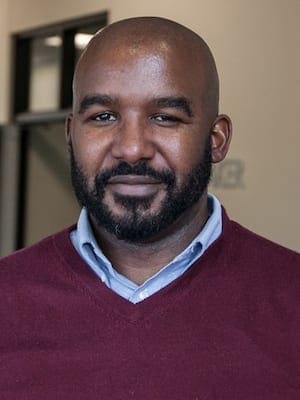I am a black man and I am serving as interim pastor at a white church. Not just any white church, but one that was started 100 years ago specifically to serve white people in a suburban area.
This is not the first time that I have served in a pastoral capacity at a white church. Ten years ago, I was called to be the pastor of a small, dying white congregation in south St. Louis.
In the late 20th century, the neighborhood surrounding that particular church transformed from being predominantly white and middle class to being black and poor. Due to various factors, the membership had dwindled.
The remaining members realized that if the church was going to survive, it had to change. The first change was to call a pastor that reflected the makeup of the area. And so, I was called and served with pride.
Within five years, the makeup of the congregation changed to reflect the makeup of the surrounding community and the congregation grew.
The church where I currently serve recently celebrated 100 years of existence, and I preached the celebration sermon for the centennial event. Before that service, I glanced through multiple articles written for local newspapers about the church. One article in particular caught my attention.
This article contained a quote from a former pastor acknowledging that the church was originally formed to specifically serve white people in the area. The irony of the situation was not lost on me.
This church, which willingly kept blacks and whites separate 100 years ago, was about to host an event where blacks and whites not only worshipped together, but a black man was serving in a pastoral capacity and delivering the sermon for the event. How times have changed.
I don’t think that any of the members of these two congregations would ask for, or accept, applause for this.
Instead, I think that they would all praise God that over time people have come to understand that men and women of different races, cultures and socioeconomic backgrounds are all equal before God.
Neither of these two congregations considers themselves to be special or unique.
Instead, they see themselves as people who have adopted the principle that all of God’s created people are equal and they have figured out ways to practice that belief within intentional community.
So, what does this mean for other congregations who seek to build relationships across lines of racial difference? What are some of the steps that congregations can consider in order to begin racial reconciliation with other communities?
First, congregations can begin by admitting that disparities have occurred in the past, which have negatively affected certain people groups.
This does not mean that you should try to take responsibility for what happened, but this will show that you acknowledge that there have been divisions between certain groups of people and that tensions still exist due to those divisions. By doing this, it will show that you are willing to work to change things in the future.
Second, acknowledge that certain differences exist between groups of people.
God has created us all differently and we have all been shaped by different cultural experiences. We worship differently. We sing differently. We practice our common faith in different ways.
In trying to build bridges with those that are different from you, do not try to be something that you are not, and don’t ask them to be something that they are not.
Recognize how you differ and learn to understand how those differences can be used to bring God glory.
Third, find ways to intentionally partner with those who are different from you at regular intervals throughout the year.
Don’t wait until black history month or Martin Luther King Jr.’s birthday before you invite a black speaker to your church. Don’t wait until Cinco de Mayo to invite a Latina to preach.
Intentionally plan to invite people who are different from the makeup of your congregation, even when it’s not an ethnic holiday.
Also, consider starting or participating in a joint worship service that is shared between churches of different ethnicities. At this type of service, choirs from each church can sing separately and together and leaders can alternate preaching responsibilities.
Through these types of services, both groups of people can learn to appreciate different ways of worshipping God.
My prayer is that by opening ourselves up to spending time with people who are different from us, we will learn to see all people as God sees them.
Terrell Carter is currently interim pastor at Webster Groves Baptist Church in Webster Groves, Mo., and director of the Foundations in Ministry certificate program for Central Baptist Theological Seminary in St. Louis.
A pastor, author and educator living in St. Louis, Missouri, he is the author of several books, including The Gospel According to Broadway and Taking Apart Bootstrap Theology: Gospel of Generosity and Justice.

